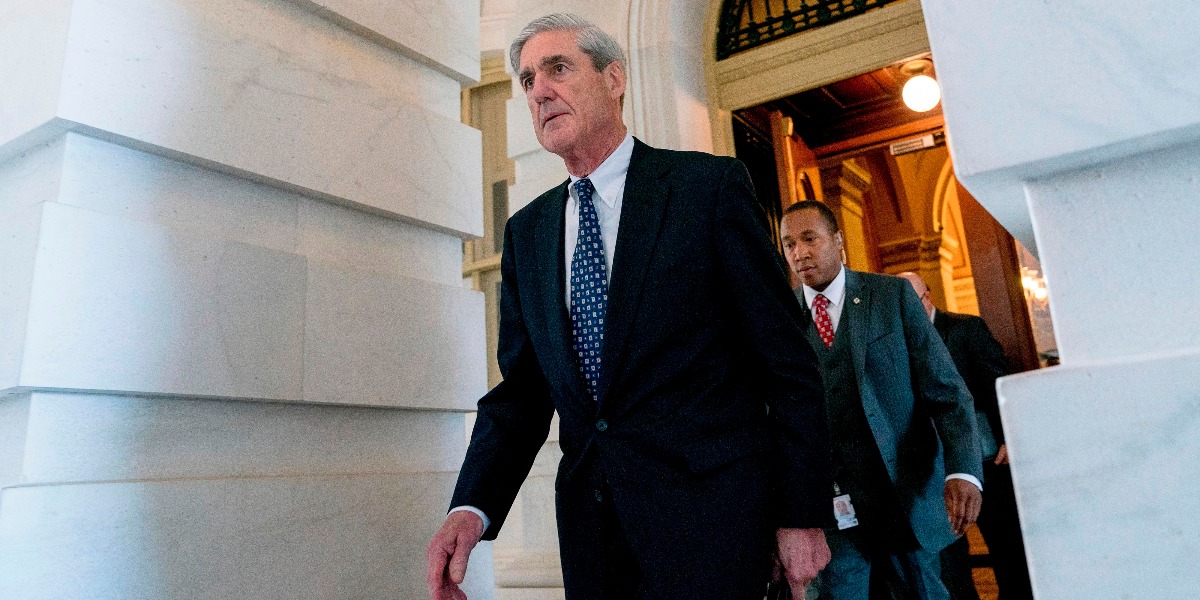“Special Counsel Robert Mueller Fired, President Trump Cited Conflict of Interest.”
Videos by Rare
Were it not for the scruples of White House Counsel Donald F. McGahn II, whose threat of resigning reportedly brought Trump back from the brink of a political crisis, Americans would have woken up to that headline across the front pages of their newspapers. Mueller may have been back at his old law firm already. Indeed, were it not for a single White House lawyer, the country would have gone through its worst constitutional crisis since the days of Richard Nixon and Watergate. The firing of the special counsel, coming a month after Trump fired FBI Director James Comey, may have even swayed enough moderate and institutionalist Republicans on Capitol Hill to begin exploring an impeachment inquiry.
Fortunately for the country, the Republican Party, and the president himself, Trump pulled back at the last moment.
For the purposes of Mueller’s obstruction of justice case, however, the mere attempt of Trump ordering the special counsel’s termination may be all the evidence the special counsel needs. Last night’s reporting from the New York Times is one more piece in a puzzle that is really taking the form of obstruction, even to the layman like me.
It’s not an easy task for a prosecutor to prove an obstruction charge. According to the U.S. Criminal Code, one needs to show corrupt intent behind the act. For example, was the act motivated by an intent to block investigators from acquiring evidence, lead prosecutors down the wrong path, or to hide evidence? Was there sufficient animus involved behind the decision to obstruct?
In the case of Mueller’s investigation, Trump’s actions over the previous year certainly suggest that obstruction is well within the ballpark. Consider the evidence in the public record, much of which has been uncovered by the Times over the course of the paper’s reporting:
- In February 2017, Trump shooed his senior advisers, chief of staff, and Attorney General out of the Oval Office before requesting then-FBI Director Comey to drop the criminal investigation of former National Security Adviser Michael Flynn. According to Comey’s notes, the words were as follows: “I hope you can see your way clear to letting this go, to letting Flynn go. He is a good guy. I hope you can let this go.”
- Trump leaned on the Director of National Intelligence and the Director of the National Security Agency to publicly deny any collusion existed between Russia and Trump campaign officials. “In addition to the requests to Coats and Rogers,” according to the Washington Post, “senior White House officials sounded out top intelligence officials about the possibility of intervening directly with Comey to encourage the FBI to drop its probe of Michael Flynn…”
- A day after Comey’s firing, Trump commented to the Russian Foreign Minister and the Russian Ambassador during a White House meeting that the pressure of the Russia investigation was now partially lifted from his shoulders.
- During an interview with NBC News, Trump confirmed that he had the Russia investigation on his mind when he decided to terminate Comey. And indeed, subsequent reporting from Politico corroborated Trump’s anger with Comey months earlier for the Director’s testimony to the Senate, in which he confirmed that the FBI was looking into whether there was collusion between the Kremlin and the Trump campaign.
- Trump pressed senior Republican lawmakers, including Intelligence Committee Chairman Richard Burr and Majority Leader Mitch McConnell, to conclude their own investigations into the matter.
- Upon hearing that Attorney General Jeff Sessions was thinking about refusing himself from the Russia inquiry, Trump ordered McGahn to pressure Sessions to stay on. When Trump found out his attempt failed and that Sessions took the advice of Justice Department lawyers to step away from the investigation, he was livid that his Attorney General wasn’t protecting him.
Compile all these public reports together and it sure seems like there is a pattern of Trump using his powers as the head of the executive branch to stall, slow, or end the Russia inquiry. One can only guess what additional evidence Mueller has gotten his hands on after eight months, but it doesn’t look good for Trump or his lawyers.



